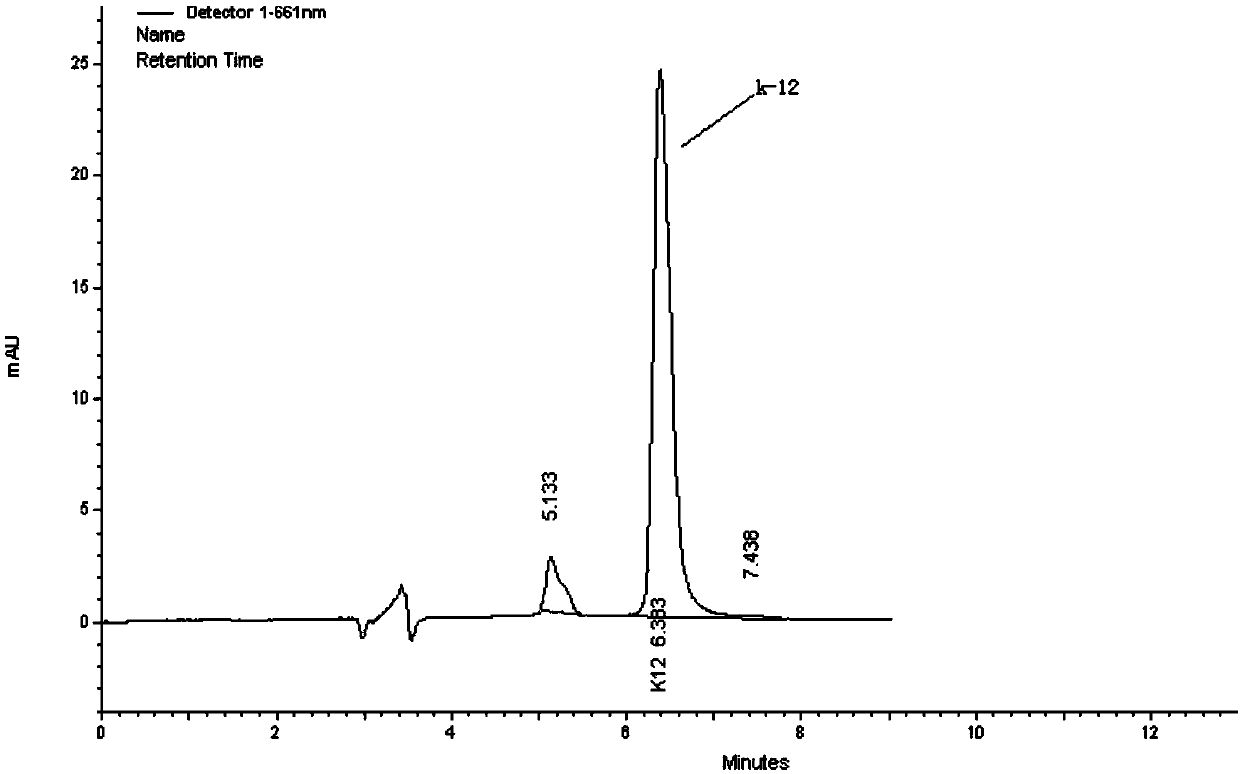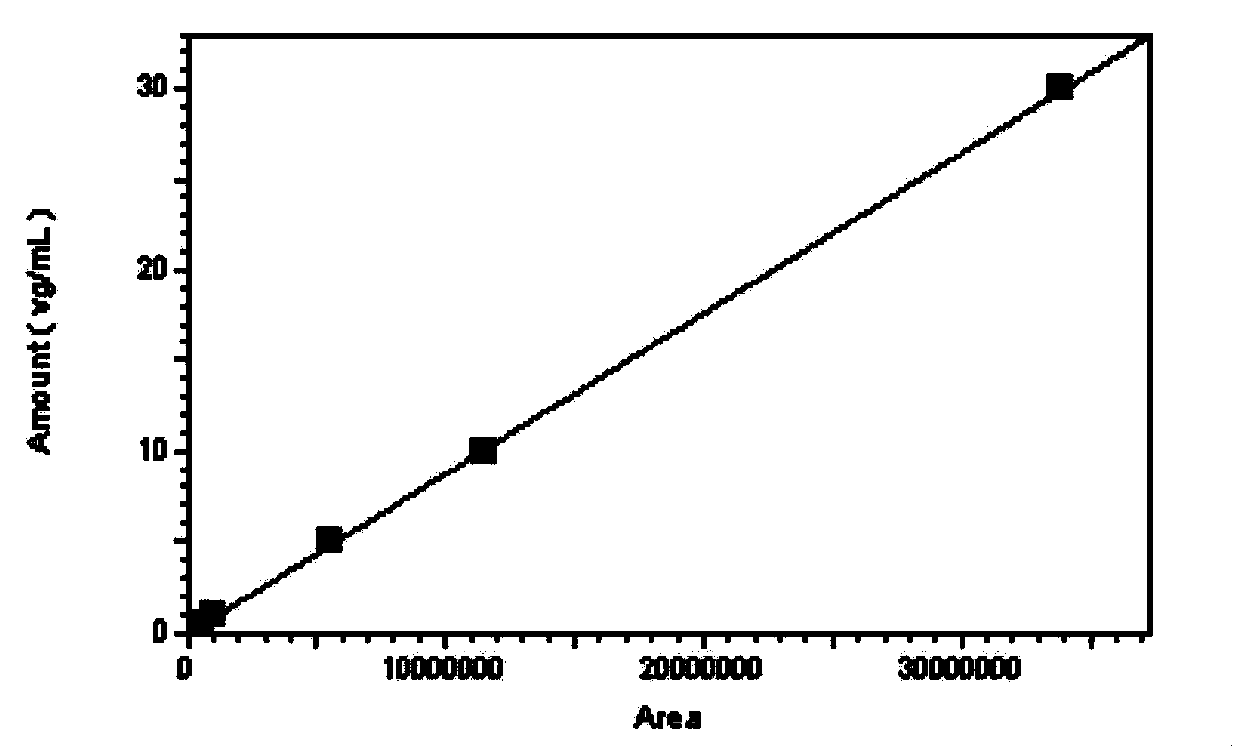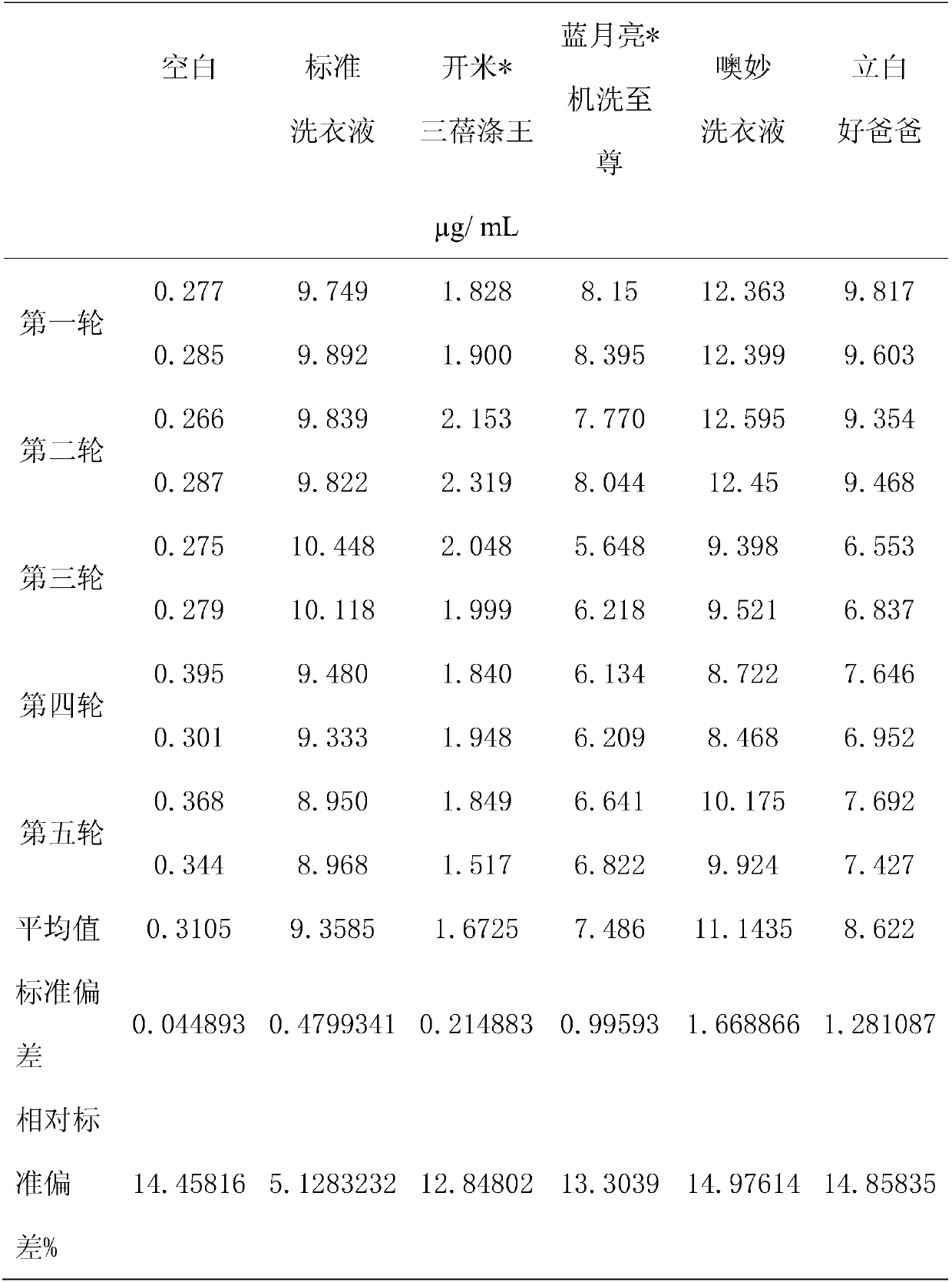Method for detecting detergent residue on fabric by liquid chromatography
A detergent residue, liquid chromatography technology, applied in measuring devices, instruments, scientific instruments, etc., can solve problems such as inaccurate quantification, and achieve the effects of high accuracy, strong reliability and wide applicability
- Summary
- Abstract
- Description
- Claims
- Application Information
AI Technical Summary
Problems solved by technology
Method used
Image
Examples
Embodiment example
[0077] Implementation case: detection of detergent residues on fabrics after washing with standard laundry detergent, Kaimi Sanbei Diwang, Blue Moon Machine Wash Supreme, Ohmiao laundry detergent, Liby Haopapa, etc.
[0078] 1. Instruments and reagents used in the experiment
[0079] Vertical decontamination machine, RHLQ-Ⅱ type, supervised by Taiyuan Daily Chemical Institute;
[0080] UV6000LP (diode array detector) liquid chromatograph, ThermoFinnigan company;
[0081] Acetonitrile, chromatographically pure, German Merck company;
[0082] Methylene blue, (indicator), Tianjin Kemiou reagent;
[0083] K12 (sodium lauryl sulfate), standard product (purity 99.95%~100.05%), BASF Corporation;
[0084] Sodium dihydrogen phosphate dihydrate (NaH 2 PO 4 2H 2 O), (analytical pure) Tianjin Kemiou reagent;
[0085] Chloroform, analytically pure, sulfuric acid, (GB 625), 245g / L, Sinopharm Group;
[0086] JB00 white cotton cloth, Taiyuan Daily Chemical Institute;
[0087] Standar...
PUM
 Login to View More
Login to View More Abstract
Description
Claims
Application Information
 Login to View More
Login to View More - R&D
- Intellectual Property
- Life Sciences
- Materials
- Tech Scout
- Unparalleled Data Quality
- Higher Quality Content
- 60% Fewer Hallucinations
Browse by: Latest US Patents, China's latest patents, Technical Efficacy Thesaurus, Application Domain, Technology Topic, Popular Technical Reports.
© 2025 PatSnap. All rights reserved.Legal|Privacy policy|Modern Slavery Act Transparency Statement|Sitemap|About US| Contact US: help@patsnap.com



